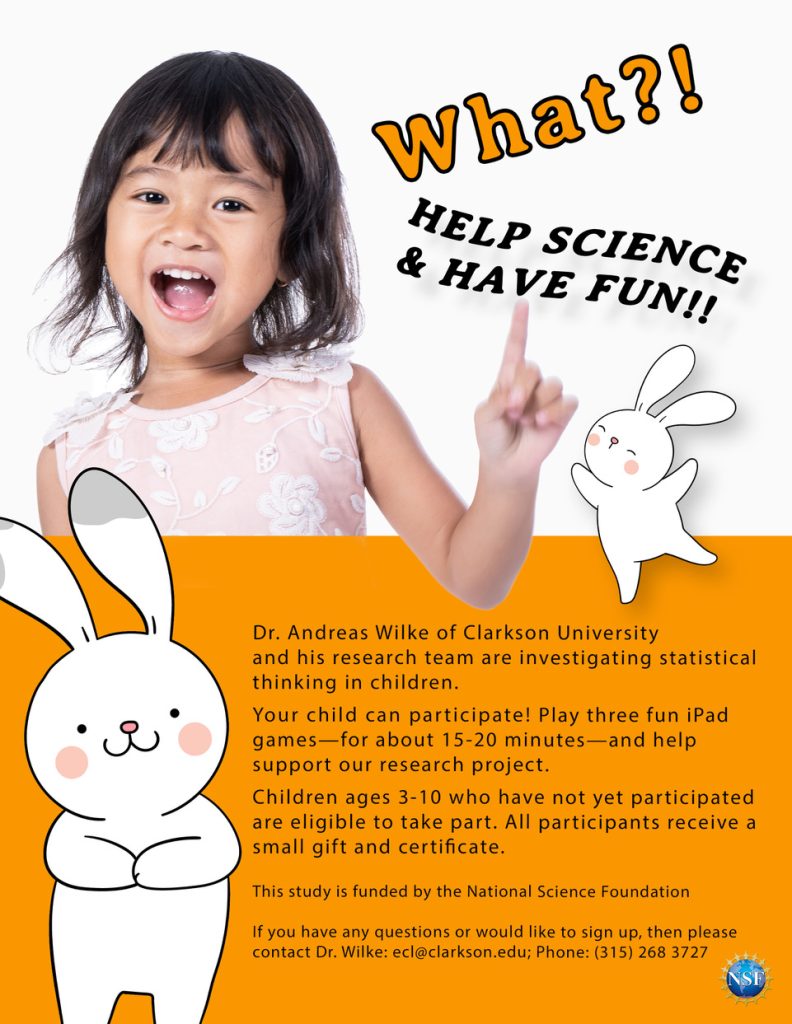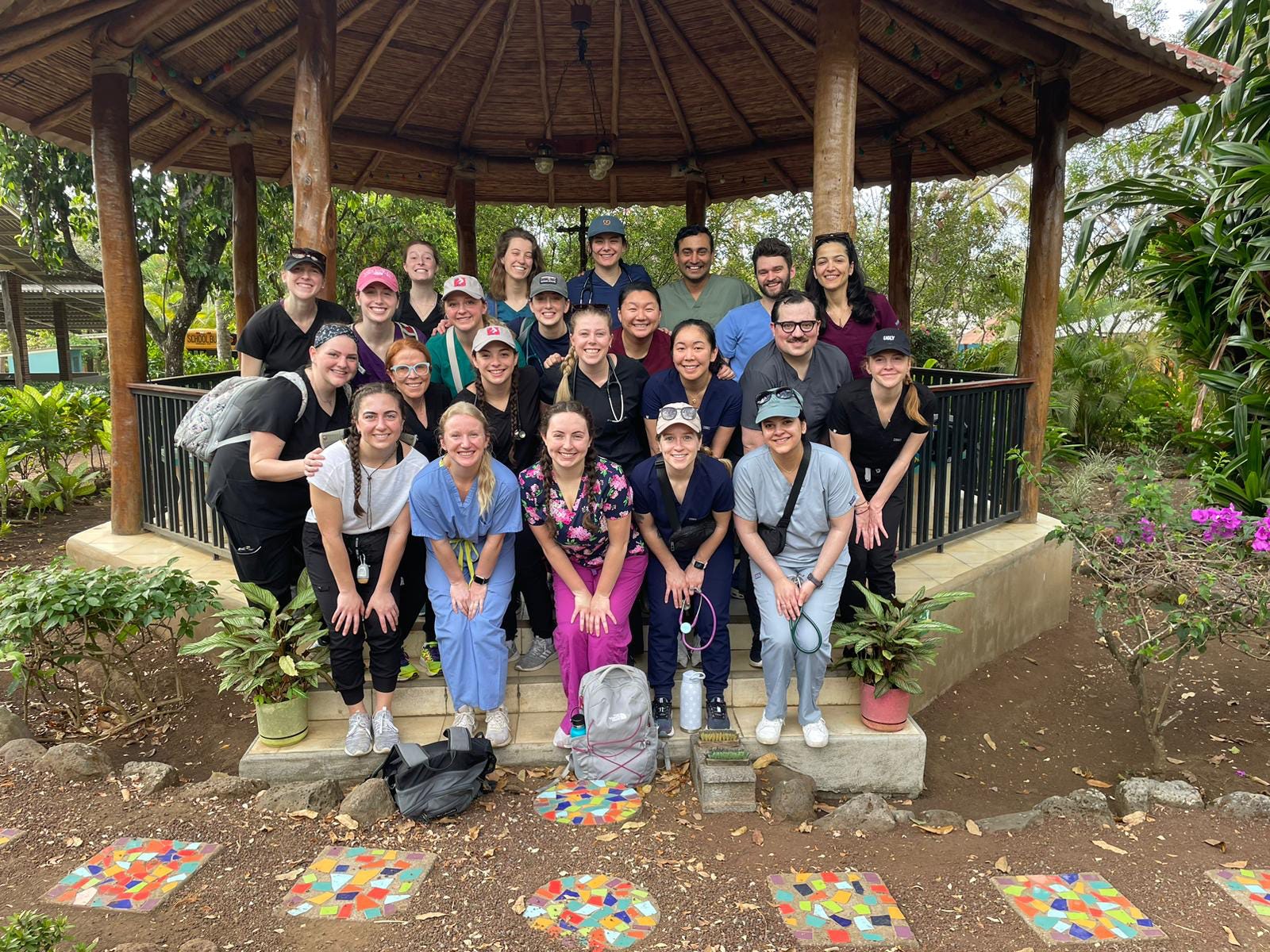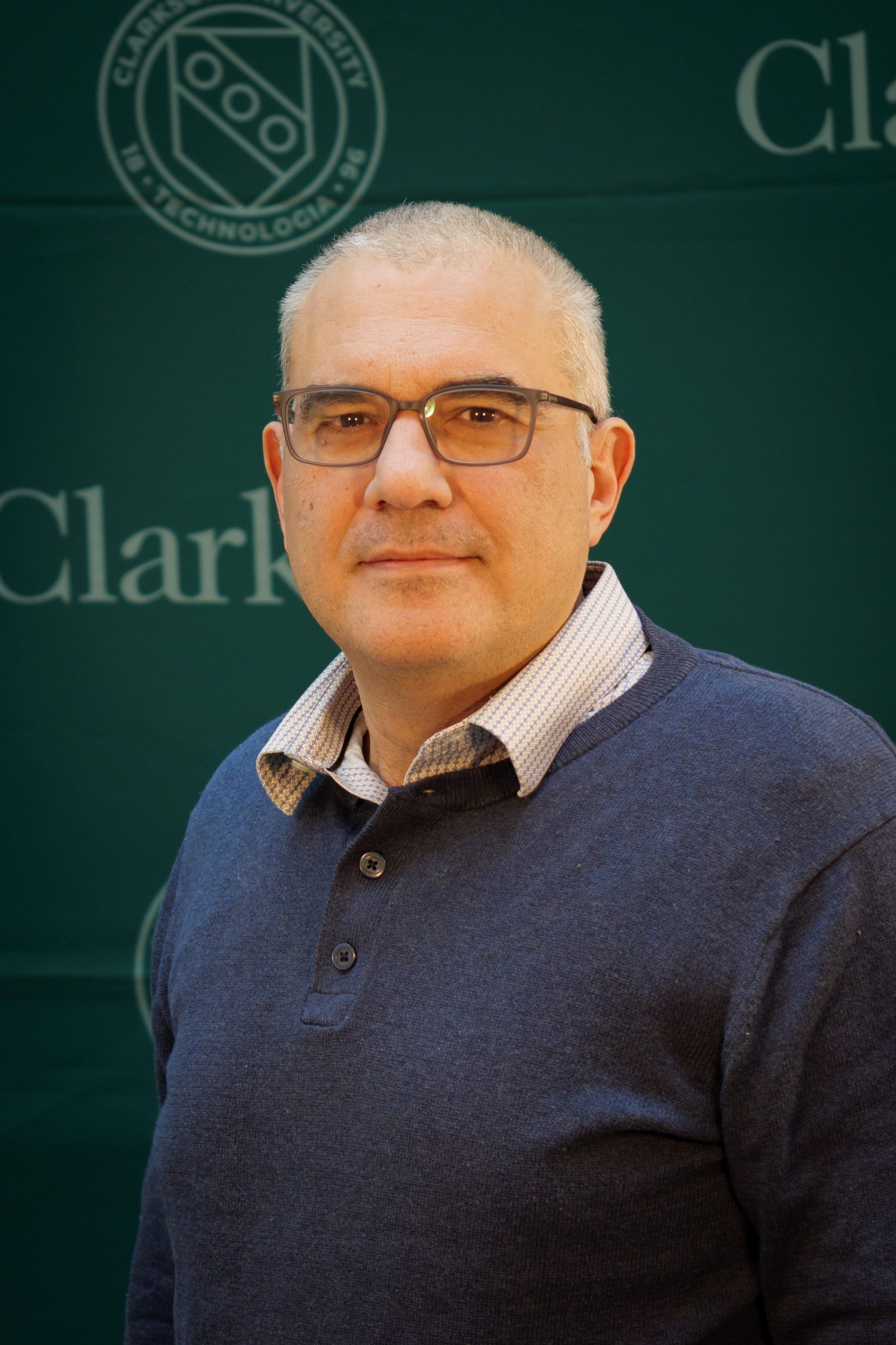Clarkson University Professor of Psychology and Chair Andreas Wilke is seeking volunteers to participate in his study of statistical thinking in children.

Wilke’s project will help him and his team better understand how people come to search for resources when they encounter different statistical patterns. The study, exploring how children aged 3 to 10 perceive these patterns, will take only 15 to 20 minutes. All participants receive a small gift and study certificate.
“Children are asked to complete three short fun iPad games,” Wilke said. “It helps us tap into early cognitive developmental stages of specific abilities that at later ages contribute to statistical thinking and statistical literacy.”
Wilke will work with four undergraduate students from Clarkson, as well as Associate Professor and Director of Digital Arts & Sciences Steven Pedersen. The project also includes national research collaborators at CUNY Staten Island, Indiana University, and UCLA as well as an international collaboration with the Max Planck Institute for Human Development in Berlin, Germany. His research is funded by a grant from the National Science Foundation. Various daycare providers in the Potsdam and Canton area and the North Country Children’s Museum are supporting the team’s research too.
According to Wilke, where people see predictable patterns versus randomness determines how they will interact with the world, including how they search for resources in stochastic environments. The results from this project will inform better methods of science education for helping children (and adults) to more accurately recognize what are likely patterns and what is entirely random.
“We are pretty blank on understanding any of this in children, at this point,” Wilke said. “Understanding the development of these abilities has applications in numerous important daily domains. A sound understanding of randomness is central to teaching statistics, informs our decision-making processes, and provides guidance when facing judgements under risk and uncertainty.”
For Wilke, this study is a continuation of his lifelong research.
“I’ve been working for the past 20 years on how people perceive statistical regularities and how we make sense of the world,” he said. “There are cognitive, information processing arguments, as well as cultural, experiential arguments of importance, but also evolutionary arguments to be made in terms of our human ancestry on how we evolved to reason with statistical information in an ecologically meaningful way.”
Anyone interested in having their child participate in Wilke’s study may contact the Evolution and Cognition lab via email at ecl@clarkson.edu or by phone at 315-268-3727.


